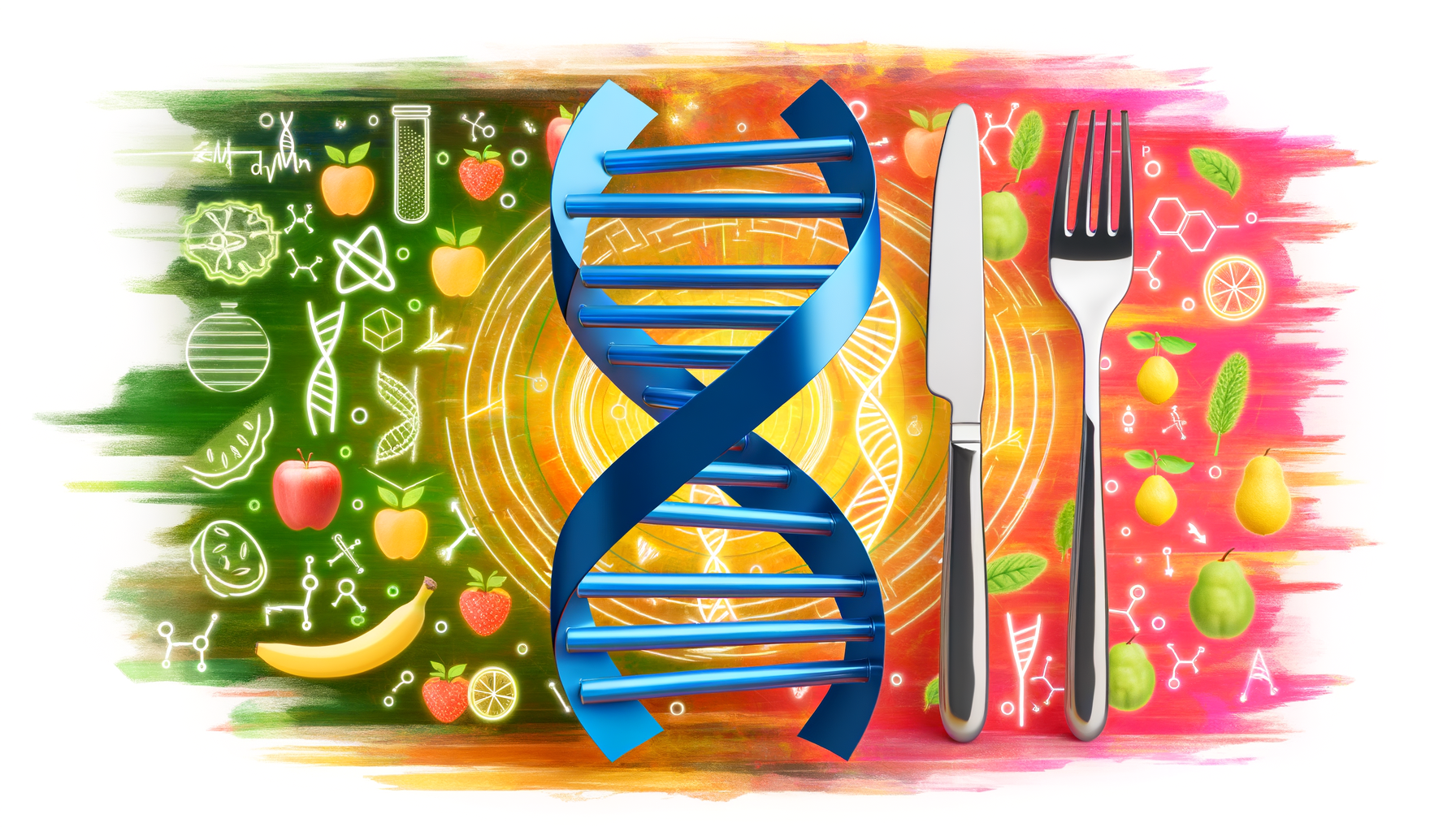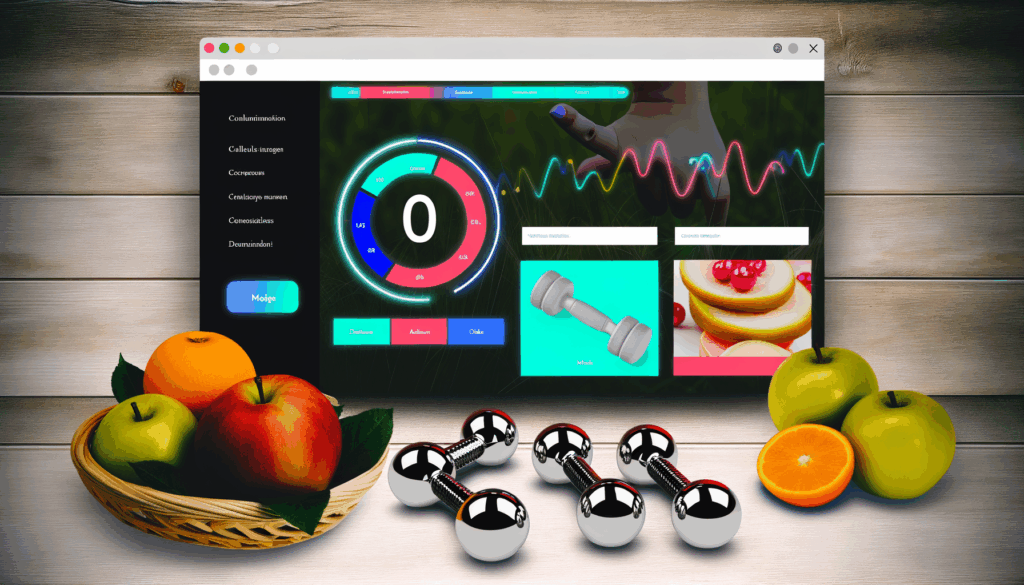Revolutionizing Health: The Synergy of Calorie Tracking and DNA Testing
In the era of personalized health, the integration of calorie tracking with DNA testing is poised to revolutionize the way we approach nutrition. This innovative approach combines the precision of genetic analysis with the practicality of calorie monitoring, offering a tailored dietary plan that is both effective and sustainable.
The Science Behind Personalized Nutrition
Personalized nutrition, often referred to as nutrigenomics, is a discipline that leverages individual genetic profiles to formulate nutritional strategies. This field is built on the premise that genetic variations significantly influence how our bodies respond to different nutrients and foods.
Genetic testing can reveal specific genes such as MTHFR, FTO, and APOA2, which play crucial roles in determining dietary needs. For instance, genetic variations in the FTO gene have been linked to obesity and weight management, suggesting that personalized dietary interventions could be more effective for individuals with this genetic predisposition.
How DNA Testing Works in Nutrition
DNA testing for nutrition involves analyzing an individual’s genetic data to understand how their body metabolizes different nutrients. Here are some key aspects of DNA-based dietary recommendations:
– **Genetic Variability and Nutrient Metabolism**: DNA tests can identify how efficiently an individual metabolizes substances like caffeine, alcohol, and various nutrients. For example, genetic variations can determine lactose tolerance or the body’s ability to process certain vitamins and minerals.
– **Personalized Meal and Exercise Plans**: Services like Living DNA and 23andMe provide detailed reports on how an individual’s genes affect their health. These reports include customized meal plans, exercise recommendations, and supplement advice tailored to the individual’s genetic makeup.
– **Microbiome Analysis**: Some studies, such as those conducted at the Weizmann Institute of Science, use stool sample analyses to create individualized dietary recommendations. This approach considers the unique composition of an individual’s microbiome and its impact on nutrient absorption and health outcomes.
Integrating Calorie Tracking with DNA Testing
Calorie tracking is a fundamental component of any dietary plan, as it helps individuals manage their energy intake and achieve their health goals. When combined with DNA testing, calorie tracking becomes even more effective.
– **Tailored Caloric Intake**: By understanding an individual’s genetic predispositions, it is possible to tailor their caloric intake to their specific metabolic needs. For example, if a DNA test reveals that an individual has a slower metabolism due to genetic factors, their calorie intake can be adjusted accordingly to support weight management.
– **Optimized Macronutrient Balance**: DNA testing can provide insights into how an individual’s body handles different macronutrients such as carbohydrates, fats, and proteins. This information can be used to optimize the macronutrient balance in their diet, ensuring they are consuming the right portions to support their health and fitness goals.
– **Enhanced Health Outcomes**: Studies have shown that DNA-based dietary interventions can lead to significant improvements in health outcomes, including better blood sugar levels, reduced risk of chronic diseases like diabetes and cardiovascular disease, and improved weight management.
Real-World Examples and Case Studies
Several studies and real-world applications demonstrate the efficacy of integrating DNA testing with calorie tracking:
– **The Food4Me Trial**: This multi-country randomized controlled trial found that personalized nutrition advice based on genetic data led to significant reductions in the intake of unhealthy foods and improvements in dietary quality compared to standard “healthy eating” advice.
– **DnaNudge App**: The DnaNudge app uses genetic information to provide personalized dietary recommendations. Users can scan food barcodes to find healthier product options tailored to their genetic profile. This approach has been shown to improve glucose regulation and reduce the risk of diabetes.
Practical Applications and Tools
For those interested in integrating calorie tracking with DNA testing, several tools and services are available:
– **Calorie Calculator Cloud**: This platform offers a comprehensive calorie tracking system that can be integrated with DNA testing data to provide personalized dietary recommendations. By using Calorie Calculator Cloud, individuals can monitor their calorie intake and adjust it based on their genetic profile and health goals.
– **DNA Nutrition Tests**: Services like InsideTracker and SelfDecode offer DNA nutrition tests that provide detailed reports on how to optimize your diet based on your genetic data. These reports include recommendations on the right portions of fat, carbohydrates, and proteins, as well as advice on supplements and vitamins.
Future Directions and Challenges
While the integration of calorie tracking with DNA testing holds great promise, there are several challenges and future directions to consider:
– **Data Privacy and Ethical Concerns**: The use of genetic data raises significant ethical and privacy concerns. Ensuring the secure and responsible use of this data is crucial for the widespread adoption of personalized nutrition.
– **Multidisciplinary Research**: The future of personalized nutrition lies in robust multidisciplinary research that integrates genomics, bioinformatics, and nutritional sciences. This will help overcome current challenges and advance the field further.
– **Broader Adoption**: For personalized nutrition to have a significant impact on public health, it needs to be adopted more broadly across health and wellness sectors. This includes integrating personalized nutrition into healthcare systems and making it more accessible to the general public.
Conclusion and Next Steps
The integration of calorie tracking with DNA testing represents a significant leap forward in the field of personalized nutrition. By leveraging genetic data to tailor dietary recommendations, individuals can achieve better health outcomes, manage chronic diseases more effectively, and optimize their overall well-being.
If you are considering this approach, here are some next steps:
– **Consult with a Healthcare Provider**: Before starting any new dietary plan, it is important to consult with a healthcare provider to ensure that the recommendations align with your overall health needs.
– **Choose a Reputable DNA Testing Service**: Select a reputable DNA testing service that provides comprehensive and actionable reports. Services like Living DNA and 23andMe are well-regarded in the industry.
– **Use a Calorie Tracking Platform**: Utilize a calorie tracking platform like Calorie Calculator Cloud to monitor your calorie intake and adjust it based on your genetic profile and health goals.
By combining the insights from DNA testing with the practicality of calorie tracking, you can embark on a personalized nutrition journey that is tailored to your unique genetic and health needs. For more information on how to get started, visit Calorie Calculator Plans to explore the various options available.








